How To Stop Snoring: 6 Home Remedies And Medications
You only need to follow the right tips and techniques to get some quality sleep sans the snores.

Image: Shutterstock
Snoring can be annoying and affect a good night’s sleep. If you or your partner is troubled by it, you may try effective snoring remedies discussed in the article. Snoring affects sleep quality and may lead to sleep apnea and sleep deprivation. And you may wake up feeling irritated. Knowing the causes of snoring is crucial for proper treatment. This article explains the causes of snoring and remedies to prevent it. Read on.
In This Article
Is Snoring Normal?
Occasional snoring is common and typically harmless. It is often caused by relaxed throat muscles during sleep. However, persistent and loud snoring may indicate an underlying issue, such as sleep apnea or nasal congestion. If your snoring is disruptive or accompanied by other symptoms, ensure a comprehensive evaluation and appropriate intervention for overall sleep health.
There are a few ways to find out the reasons behind it. The next section tells you how.
Key Takeaways
- You snore when you cannot pass air freely through your airway while asleep.
- A blocked nose, hyperthyroidism, or obesity can all cause snoring.
- Using nasal strips or a humidifier with certain herbs and spices can help stop snoring.
What Makes You Snore?
It does not feel good to be repeatedly told by people that you snore. So if you are asking “why do I snore?”, you are both justified in your frustration and on the right track towards snoring solutions. To find out how to stop snoring, you must understand what causes snoring in the first place.
Snoring occurs when the passage of the air you breathe in and breathe out is obstructed in some way during sleep. If the airway is partly blocked or narrowed, the air makes the tissues present in the upper airway vibrate, which leads to the sound that you call a snore. There are several reasons that may lead to a chronically narrowed or temporarily blocked airway during sleep.
- The Anatomy Of The Mouth, Nose, Head Or Neck
The size or shape of certain physical structures may also be responsible for obstruction or constriction in the airway and thus lead to snoring. A deviated septum (a bent or skewed wall between the nostrils), polyps (small growth in the nasal passage), a small jaw, enlarged tonsils, or tongue may contribute to snoring. Research indicates that there is some correlation between facial anatomy and the occurrence of sleep disorders that involve snoring (1), (2).
- Obstructive Sleep Apnea
Obstructive sleep apnea (OSA) is one of the most common, yet often undiagnosed, sleep-related breathing disorders that is characterized by repeated pauses in breathing. It happens due to a partially or completely collapsed airway. You may be able to identify it as an alternating series of irregular loud snores and periods of silence with intermediate gasping or snorting sounds. OSA is a serious adverse health condition that requires diagnosis and treatment (3).
- Hypothyroidism
Hypothyroidism is a condition in which the thyroid gland does not function optimally. Due to this, thyroxine hormone, which regulates body metabolic rate is also not secreted in the required amount. Hence, increased mucus in the upper airway and decreased lung function may cause snoring in people suffering from hypothyroidism. According to a sleep study conducted on twenty people who had hypothyroidism, it was found that all of them experienced snoring (4).
- Nasal Congestion
A chronically congested nose because of allergies or infections may make you prone to snoring. Allergies can cause inflammation in the airway, including the nasal passages, and make the airway narrow. A stuffy nose may also reduce the flow of air through the passage and contribute to snoring. Research suggests a strong link between habitual snoring (without sleep apnea) and nighttime nasal congestion (5).
- Obesity
Research has found an association between obesity or excessive weight gain and sleep-related breathing disorders, including snoring. Obesity may lead to accumulation of tissues around the tongue, neck, and throat tissues, and the entirety of the upper airway soft tissue. In addition, the muscles are not toned. This is a potential cause for airflow obstruction and maybe a possible reason behind snoring (6).
- Alcohol Or Sedatives
Consuming a lot of alcohol before bedtime may make you snore. That’s because alcohol may relax the muscles that provide support to the tissues holding up the airway. Studies have found that alcohol makes snoring more severe in those who already snore (7). Sedatives may play a similar role and make you snore, especially if you have undiagnosed sleep apnea. Studies suggest a link between snoring under the influence of sedatives and the occurrence of obstructive sleep apnea (8).
- Lifestyle, Sleeping Habits, And Other Reasons
Additionally, other factors like smoking, sleeping position, level of tiredness, and age may contribute to snoring (9). Habitual snoring may be indicative of underlying conditions and may sometimes even lead to associated health issues (10).
Dr. Robert Baker from Chippewa shares personal experiences with snoring and aims to provide information and reviews on snoring solutions. He emphasizes the impact of snoring on health and life quality, categorizing it as a potential “silent killer.” He also mentions, “Snoring and being healthy just do not go together. Snoring can cause everything from all day fatigue to heart and circulatory problems (i).”
You cannot remedy a situation that you are not aware of. So, how do you even find out if you snore or not?
How To Know That You Snore
Chances are, you already know that you snore because your co-sleeper has spoken to you about it. That’s the simplest way to find out anyway. Simply ask anyone who is around and awake as you sleep to let you know if you snore or not. In case you live alone, you can always record yourself at night. If it gets noisy, you would know.
Once you have evidence that you snore, you may want to know how to stop snoring while sleeping. So, let’s head on to the next section to find out how to stop snoring yourself or how to stop someone from snoring.
6 Snoring Remedies: How To Stop
There are various remedies that can help you to stop snoring, or at least reduce the severity of snoring significantly. Whether or not these remedies work for you may depend on the reason why you snore.
1. Change Your Sleeping Position
The answer to how to stop snoring immediately is simple— change your sleeping position. Studies suggest that snoring may be significantly reduced by changing to a side-lying position during sleep. This change, however, has been noted mostly among non-obese people (11).
2. Use A Humidifier
Nasal congestion, a possible cause of snoring, may worsen in a dry atmosphere. Using a humidifier in the room may bring relief and help to clear the nasal cavity, which may, in turn, bring relief from snoring (12). This approach is a popular home remedy for sleep apnea, aiming to alleviate symptoms and improve overall breathing during sleep. However, there are many other remedies for sleep apnea that you can explore for better results.
3. Inhale Steam Before Bedtime
Studies show that there is a positive correlation between sleep quality and steam inhalation before bedtime. Since poor sleep and fatigue contribute to snoring in many cases, inhaling steam every night before you sleep may be an effective way to stop snoring (13).
4. Elevate Your Head While You Sleep
Upper airway collapse is one of the leading causes of snoring. Studies have shown that elevating the head while sleeping may prevent upper airway collapse in patients with obstructive sleep apnea (14), (15).
5. Lose Weight
As the excessive tissue in the neck and throat increases the possibility of a narrowed passage that leads to snoring, losing weight may help you to stop snoring. Researchers have found a significant difference in the prevalence of snoring between adults with a healthy BMI versus those bordering on obesity or pre-obesity (16).
6. Use Nasal Strips Or Nasal Dilator
A nasal dilator or nasal strips can increase the airflow through the passage and minimize obstructed breathing significantly, according to a study. The study also found the number of snores, as well as the volume of snores, were significantly lower in volunteers who used the nasal dilator versus those who did not (17).
In some cases, snoring may be caused due to infections that cause inflammation or anatomical reasons. In those cases, these remedies may help to lessen snoring, but may not be able to stop it. Treating underlying causes to stop someone from snoring may require medication or surgery.
7. Avoid Intake Of Alcohol, Sleeping Pills Or Sedatives
Alcohol relaxes the muscles in the throat and interfere with the breathing. In a study, it was found that alcohol increased the duration and frequency of OSA . This leads to snoring (18).
8. Maintain Good Sleep Hygiene
Adequate and quality sleep helps relax the muscles in the throat and reduces snoring tendencies. Establishing a consistent sleep schedule and using supportive pillows during sleep contribute to better airflow, decreasing the vibrations in the throat that cause snoring.
 Pro Tip
Pro TipMedications For Snoring
A number of over-the-counter medicines are claimed to help improve snoring. Not all of them are safe, effective, or recommended by professionals. However, there are some medicines that have been studied to have some positive effects in reducing snoring or helping manage OSA. Antihistamines (drugs that treat allergies) and some medicines for weight loss may be particularly effective (19).
- antiepileptic drugs
- thyroid hormone
- antileukotrienes
- nasal corticosteroids
- topical soft tissue lubricant
- diuretics
However, it is important that you consult your doctor before taking any medication for snoring.
 Quick Tip
Quick TipThere may be some dietary additions that you can make to reduce your chances of snoring. Let’s explore them right away.
What To Eat Or Drink To Stop Snoring
Adding certain herbs and spices to your diet plan may help you to stop snoring, especially if your snoring is brought about by allergies or infections. While there is not sufficient evidence that these unconventional snoring remedies work, there is no harm in trying.
- Nettle Leaf Tea
Nettle tea may be an effective natural snoring remedy if you suffer from a congested nose. That’s because nettle leaves have antihistamine and antimicrobial properties which may reduce inflammation caused by allergens or infections (20).
- Mint Tea
Peppermint has antiallergic, anti-viral, and anti-bacterial properties (21). You can drink peppermint tea to relieve nasal congestion due to infections or allergies and it may help with snoring if that’s what is making you snore.
- Ginger And Turmeric
Ginger and turmeric have anti-inflammatory properties which make them a possible natural remedy for snoring (22). These spices, used as tea, eaten raw, or used in food, may bring relief from congestion.
- Garlic
Garlic, with its wide range of therapeutic benefits, may also aid sleep and prevent snoring, according to research. That’s because it can help to dry up the nasal passages and airways and therefore, improve airflow. You can have both raw or cooked garlic as its properties are not affected by cooking (23).
Now that you know how to stop snoring naturally, as well as with medical intervention, let’s see what are some ways to prevent snoring in the first place.
How To Prevent Snoring
There isn’t much you can do to prevent snoring that is caused by anatomical reasons, but you may reduce your chances of snoring if you make some positive lifestyle changes.
- Quit smoking and avoid alcohol.
- Exercise your tongue and throat muscles.
- Get enough sleep.
- Cut down on inflammatory food.
- Drink more water.
Sometimes snoring remedies that you apply by yourself may not be enough to stop you or someone who you know from snoring. In certain cases, it becomes important to get medical help.
When To See A Doctor?
Snoring disrupts the sleep of your bed partner as well as yourself. Sleep deprivation may be life-threatening if it continues over extended periods. It may also lead to other diseases like diabetes ( 10). If you think that snoring is becoming a problem, visit your doctor to understand the underlying reason behind why you snore so that an appropriate solution can be found.
Many people snore, which may impact the quality of their and their partners’ sleep. You snore when your nasal pathway is blocked, and the obstructed air vibrates in your upper airway. There are many reasons behind this common problem, from improper sleeping habits to obesity. You can stop or reduce the severity of this condition by following these simple snoring remedies. These remedies suggest you implement small lifestyle changes, like changing your sleeping position, using a humidifier or nasal strips, or adding natural nasal congestion relieving teas to your diet. It is recommended that you consult your healthcare provider if snoring interferes with your sleep to diagnose any underlying medical condition.
Frequently Asked Questions
Do skinny people snore?
Skinny people snore, but overweight people snore more frequently due to having more fat tissues in the neck and throat.
Why can’t I hear myself snore?
When you sleep, your brain’s ability to receive information is reduced. Thus, you don’t hear yourself snoring. The thalamus is a region of the brain that filters out certain sounds (like snores) before transferring motor and sensory information to the cerebral cortex.
Can a pillow reduce snoring?
The constriction or obstruction of a person’s airway causes snoring. A pillow can assist in minimizing snoring by positioning the head and neck in such a way that the airways remain open.
Does Vicks help snoring?
It all depends on the type of snoring you are dealing with. The menthol in Vicks Vaporub can help relieve nasal or chest obstruction that is causing your snoring by increasing airflow and lowering snoring.
Does sleeping on two pillows help with snoring?
Elevating the head with extra pillows may assist in opening the airways and reducing snoring. Use a pair of pillows, a foam sleeping wedge, or an adjustable bed to prop yourself up while you sleep.
Incorporating simple exercises into your routine, like throat and tongue exercises, may be effective in reducing snoring. Check out the video below to get the step-by-step technique.
Personal Experience: Source
StyleCraze's articles are interwoven with authentic personal narratives that provide depth and resonance to our content. Below are the sources of the personal accounts referenced in this article.
(i) QUIT SNORING Beaver, PA Residents | Easy Fast Affordable way to STOP!https://snoringaidsreviews.wordpress.com/2015/11/17/quit-snoring-beaver-pa-residents-easy-fast-affordable-way-to-stop-sleepmastersofpa-com/
References
Articles on StyleCraze are backed by verified information from peer-reviewed and academic research papers, reputed organizations, research institutions, and medical associations to ensure accuracy and relevance. Read our editorial policy to learn more.
- The role of the nose in snoring and obstructive sleep apnoea: an update
https://www.ncbi.nlm.nih.gov/labs/pmc/articles/PMC3149667/ - Craniofacial morphology and sleep apnea in children with obstructed upper airways: Differences between genders
https://www.sciencedirect.com/science/article/abs/pii/S1389945712000457?via%3Dihub - Dynamics of snoring sounds and its connection with obstructive sleep apnea
https://www.sciencedirect.com/science/article/pii/S0378437112008011#br000040 - The Relationship between Sleep Apnea Syndrome and Hypothyroidism
https://www.sciencedirect.com/science/article/abs/pii/S0012369216408354 - Chronic nasal congestion at night is a risk factor for snoring in a population-based cohort study
https://pubmed.ncbi.nlm.nih.gov/11427099/ - ‘Associations of Overweight’ Obesity and Related Factors with Sleep-Related Breathing Disorders and Snoring in Adolescents: A Cross-Sectional Survey
https://www.ncbi.nlm.nih.gov/labs/pmc/articles/PMC5334748/ - Impact of Alcohol Consumption on Snoring and Sleep Apnea: A Systematic Review and Meta-analysis
https://pubmed.ncbi.nlm.nih.gov/32513091/ - A systematic review of the effects of sedatives and anesthetics in patients with obstructive sleep apnea
https://www.researchgate.net/publication/51808353_A_systematic_review_of_the_effects_of_sedatives_and_anesthetics_in_patients_with_obstructive_sleep_apnea - ‘Patient- and bed partner-reported symptoms’ ‘smoking’ and nasal resistance in sleep-disordered breathing
https://pubmed.ncbi.nlm.nih.gov/16236871/ - Heavy Snoring Is a Risk Factor for Case Fatality and Poor Short-Term Prognosis after a First Acute Myocardial Infarction
https://www.ncbi.nlm.nih.gov/labs/pmc/articles/PMC2442412/ - Effect of sleep position on sleep apnea severity
https://pubmed.ncbi.nlm.nih.gov/6740055/ - Effects of Heated Humidification and ‘Topical Steroids on Compliance’ ‘Nasal Symptoms’ and Quality of Life in Patients with Obstructive Sleep Apnea Syndrome Using Nasal Continuous Positive Airway Pressure
https://www.ncbi.nlm.nih.gov/labs/pmc/articles/PMC2762712/ - Warm Steam Inhalation before Bedtime Improved Sleep Quality in Adult Men
https://www.hindawi.com/journals/ecam/2019/2453483/ - Effects of sleep posture on upper airway stability in patients with obstructive sleep apnea
https://pubmed.ncbi.nlm.nih.gov/9001312/ - The influence of head-of-bed elevation in patients with obstructive sleep apnea
https://www.ncbi.nlm.nih.gov/labs/pmc/articles/PMC5700252/ - Does ‘weight reduction’ help all adult snorers?
https://www.ncbi.nlm.nih.gov/labs/pmc/articles/PMC3644827/ - The effects of nasal dilation on snoring and obstructive sleep apnea
https://pubmed.ncbi.nlm.nih.gov/1554449/ - Alcohol, snoring and sleep apnea
https://pubmed.ncbi.nlm.nih.gov/7077345/#:~:text=Alcohol%20increased%20the%20duration%20and,the%20first%20hour%20of%20sleep - Impact of concomitant medications on obstructive sleep apnoea
https://www.ncbi.nlm.nih.gov/labs/pmc/articles/PMC5346880/ - Urtica spp.: Ordinary Plants with Extraordinary Properties
https://www.ncbi.nlm.nih.gov/labs/pmc/articles/PMC6100552/ - A review of the bioactivity and potential health benefits of peppermint tea (Mentha piperita L.)
https://pubmed.ncbi.nlm.nih.gov/16767798/ - Suppression of the nuclear factor-kappaB activation pathway by spice-derived phytochemicals: reasoning for seasoning
https://pubmed.ncbi.nlm.nih.gov/15659827/ - Study the Effect of Using Raw and Cooked Garlic in Daily Food on Sleeping of Asthmatic Patients
https://www.idosi.org/aejts/7(2)15/1.pdf
Read full bio of Dr. Archna Agrawal
Read full bio of Sanchari Bhattacharya
Read full bio of Arshiya Syeda
Read full bio of Dipti Sharma






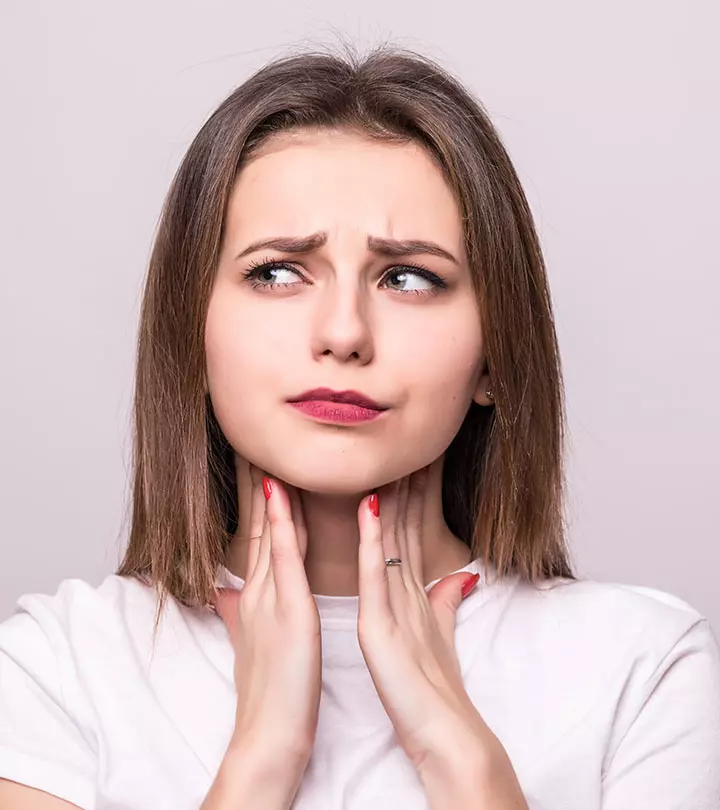
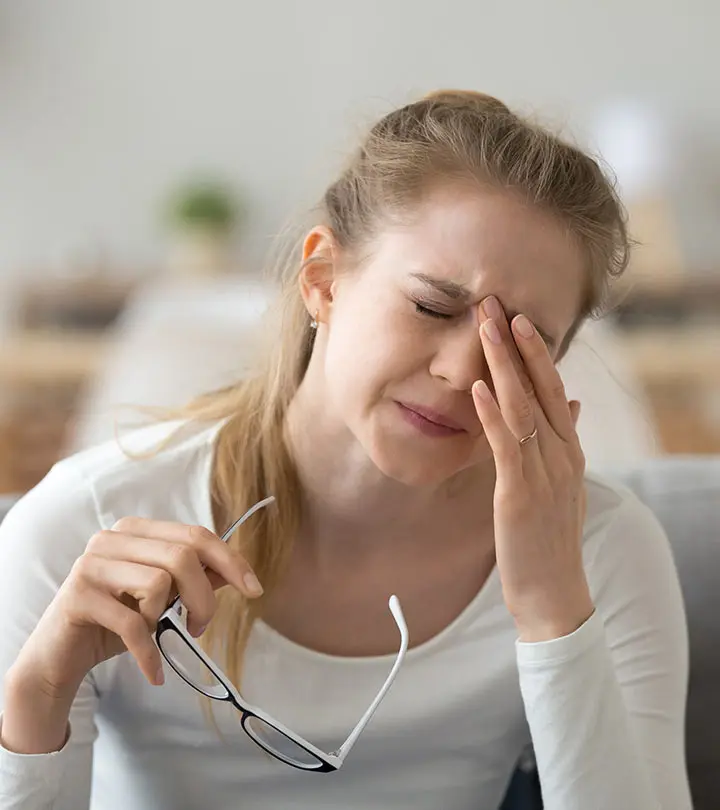
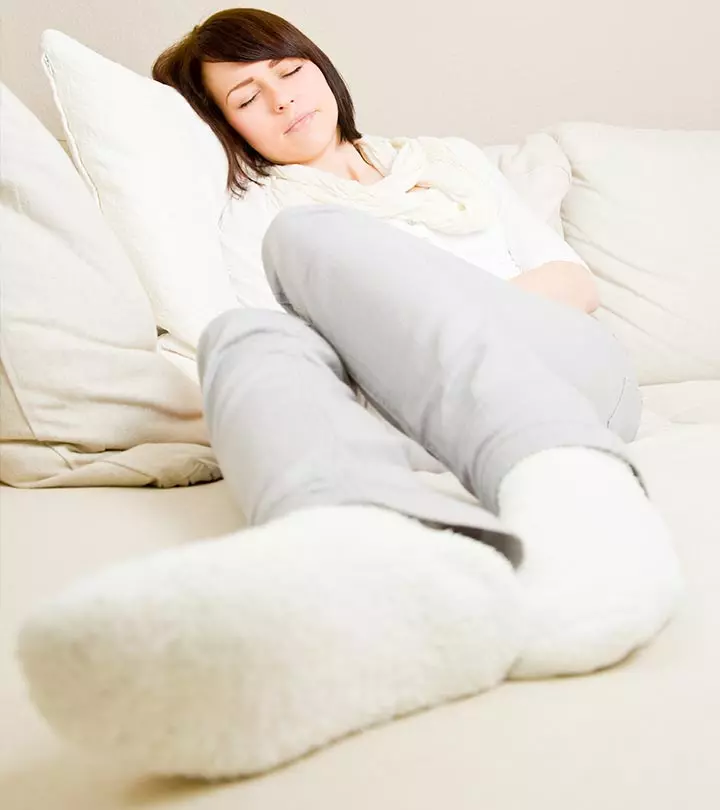
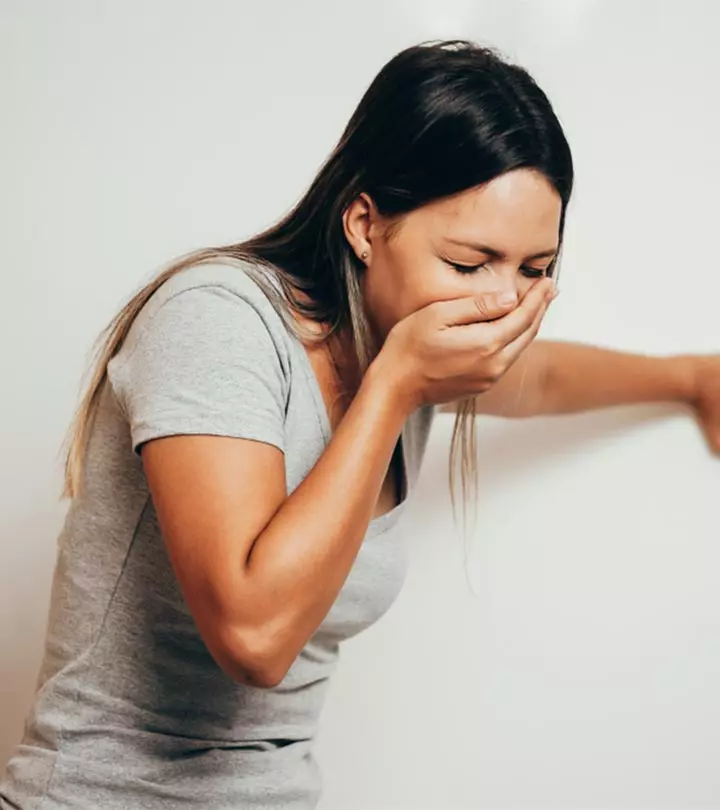





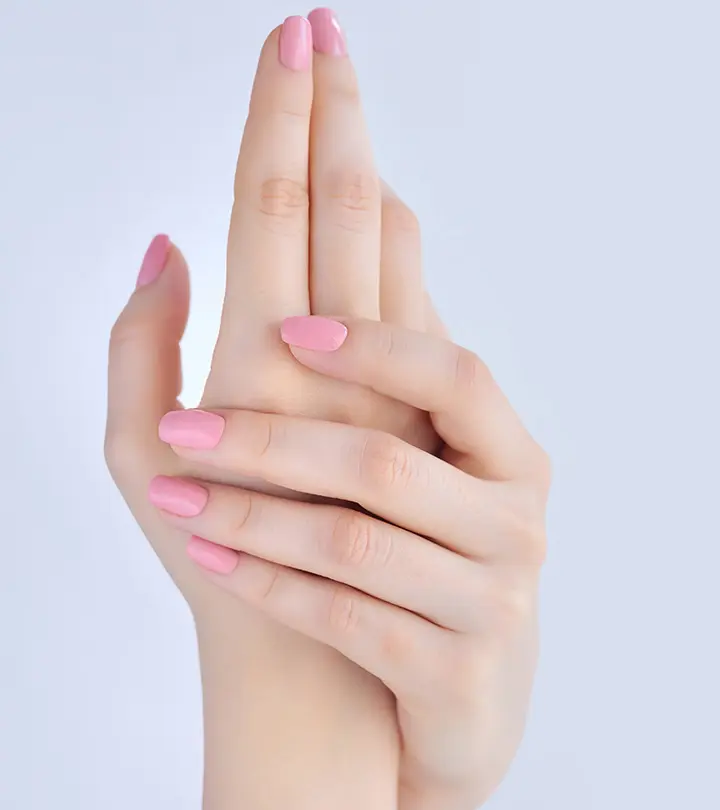

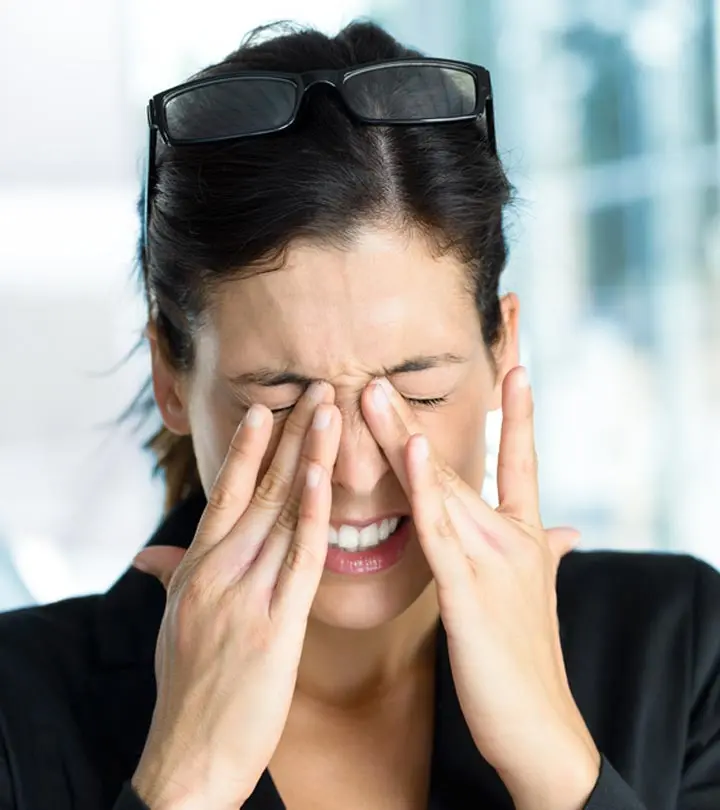
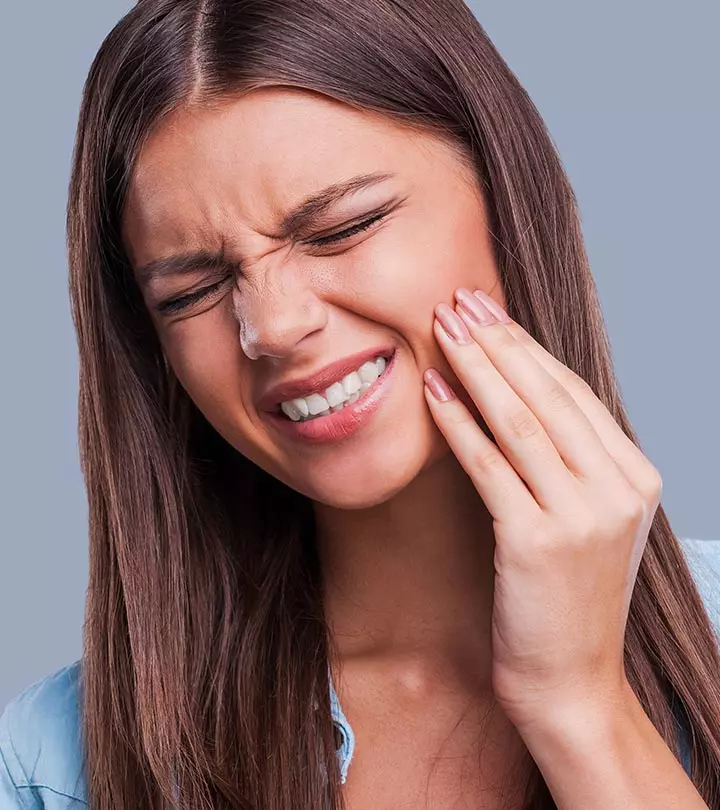

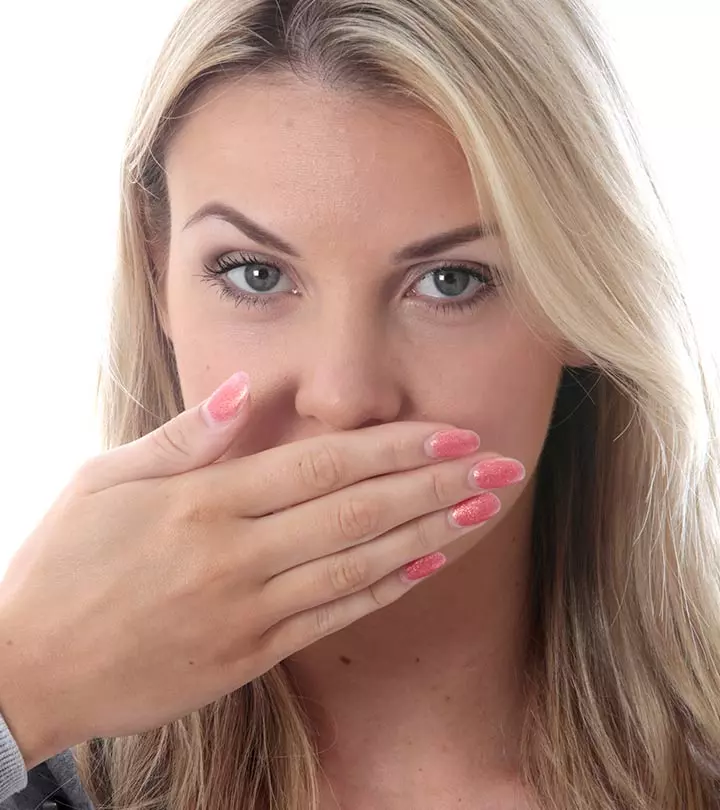

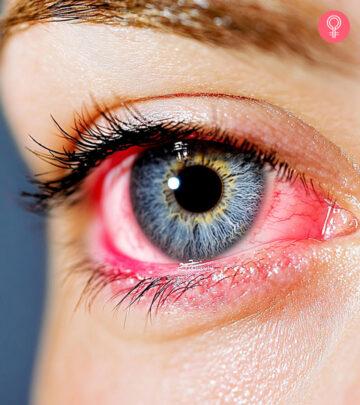
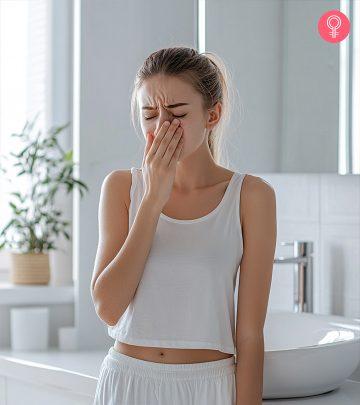


Community Experiences
Join the conversation and become a part of our empowering community! Share your stories, experiences, and insights to connect with other beauty, lifestyle, and health enthusiasts.